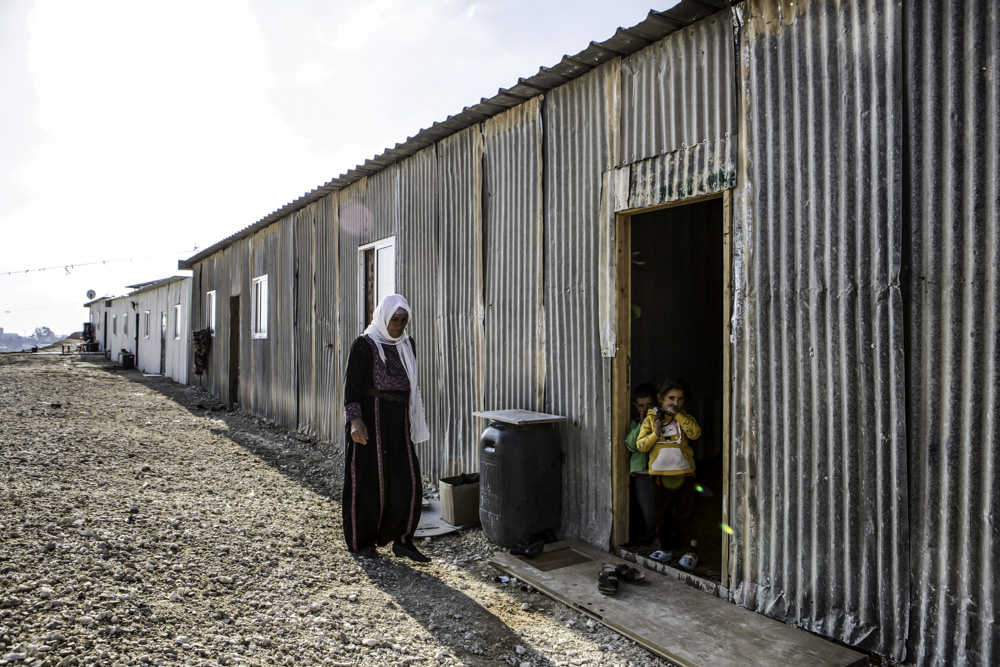Umm al-Hiran residents reject Israeli plan for 10-year temporary housing
Adalah – The Legal Center for Arab Minority Rights in Israel and Bimkom – Planners for Planning Rights submitted an objection to Israel's Southern District Planning and Building Committee on 14 November 2017 against a plan to displace residents of Umm al-Hiran to temporary housing for a 10-year period.
According to the plan, residents would be forcibly relocated to an area located under the municipal jurisdictions of Hura and Meitar.
The objection was submitted on behalf of Umm al-Hiran residents by Adalah attorneys Suhad Bishara and Myssana Morany, and by Bimkom's architect Dafna Saporta and regional planner Nili Baruch.
Makeshift housing in Hura. (Photo by Mati Milstein)
In the objection, it is argued that the plan for a temporary transfer "continues to impose on the residents of Umm al-Hiran the same reality of existence that has been their lot for 70 years, a reality of temporariness that is the outcome of forced transfer from one place to another. In light of all this, it is unreasonable to once again uproot the very same families who have been living permanently in the village for approximately 60 years to a temporary place of residence. It should be remembered that there are 78 families involved – children, adults and elderly people – for whom this transfer may be socially and economically destructive."
This plan is problematic for several reasons: Firstly, it's format contravenes and violates the Supreme Court's ruling regarding the residents of Umm al-Hiran which gave state authorities the option of evicting the residents only if appropriate housing alternatives were found through the allocation of lots in Hiran, for example. The objective of this being, as the state clarified in the framework of these proceedings, permanent housing rather than any sort of temporary housing.
The second aspect relates to the considerations behind the plan to evacuate Umm al-Hiran residents to temporary housing in order to enable Jewish residents to build a Jewish-only town in its place.
The Hiran cooperative association has stated in its charter that it intends "to plan, establish, and operate a rural, religious Jewish community … [and] to ensure in any effective way the preservation of the character of the community and a religious communal way of life in the spirit of the values of Orthodox Judaism."
Thirdly, he plan disproportionately violates the constitutional rights to dignity of the Umm al-Hiran residents.
The planned transfer "breaches the right of the residents to autonomy and freedom of choice, humiliates them by the very fact of their forcible transfer from place to place as if they were objects, and violates their right to proper housing." It further clarified that "the violation is inherent in the very concept of forced evacuation to temporary housing for an extended period of 10 years. The plan relegates a civilian issue of vital importance to all the village residents to a realm that is similar to that of an emergency situation which necessitates a forced, temporary evacuation. This measure may be appropriate for emergency situations resulting from natural disasters, etc., but not to the circumstances underlying our matter."
Further, the plan does not guarantee sustainable living conditions, and was formulated without the participation or consent of Umm al-Hiran residents.
Adalah and Bimkom demand the District Committee to reject the plan and order the advancement of a permanent, appropriate, sustainable, and just housing solution agreed upon by Umm al-Hiran residents.
















